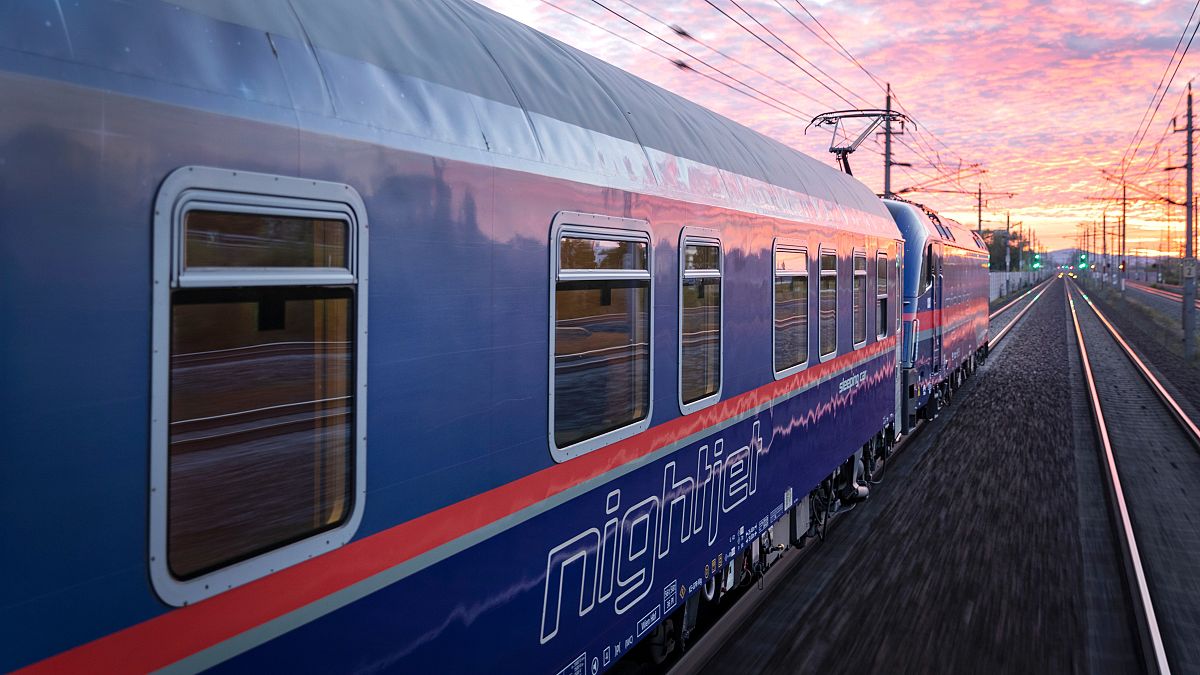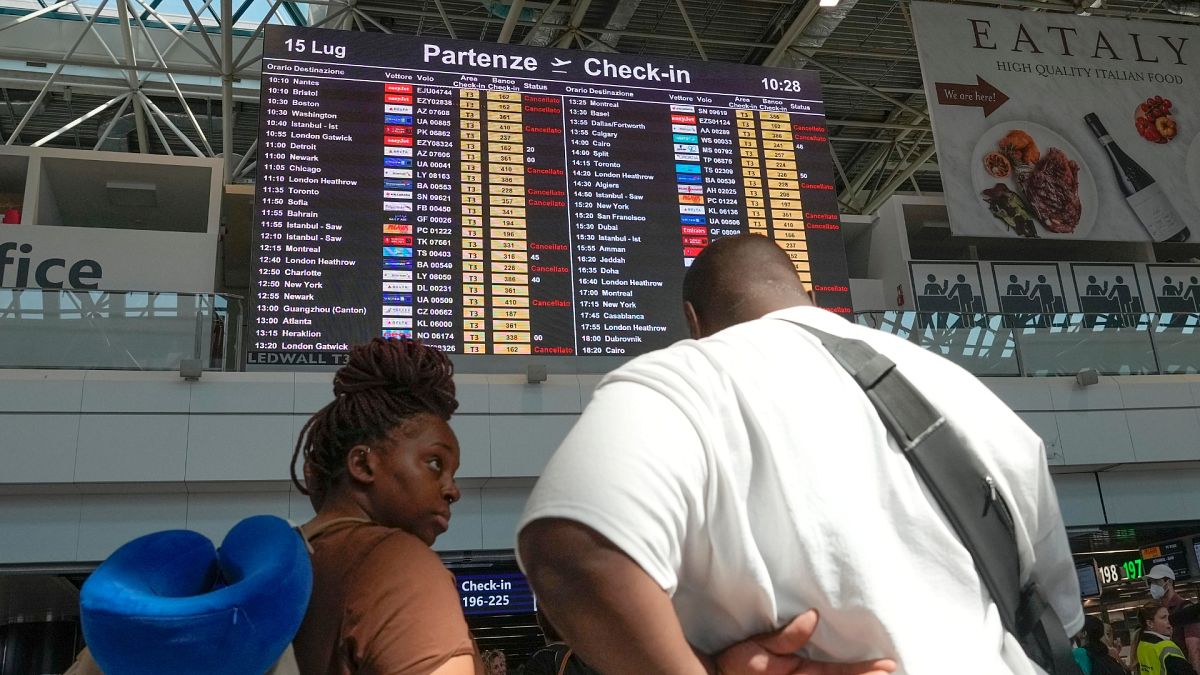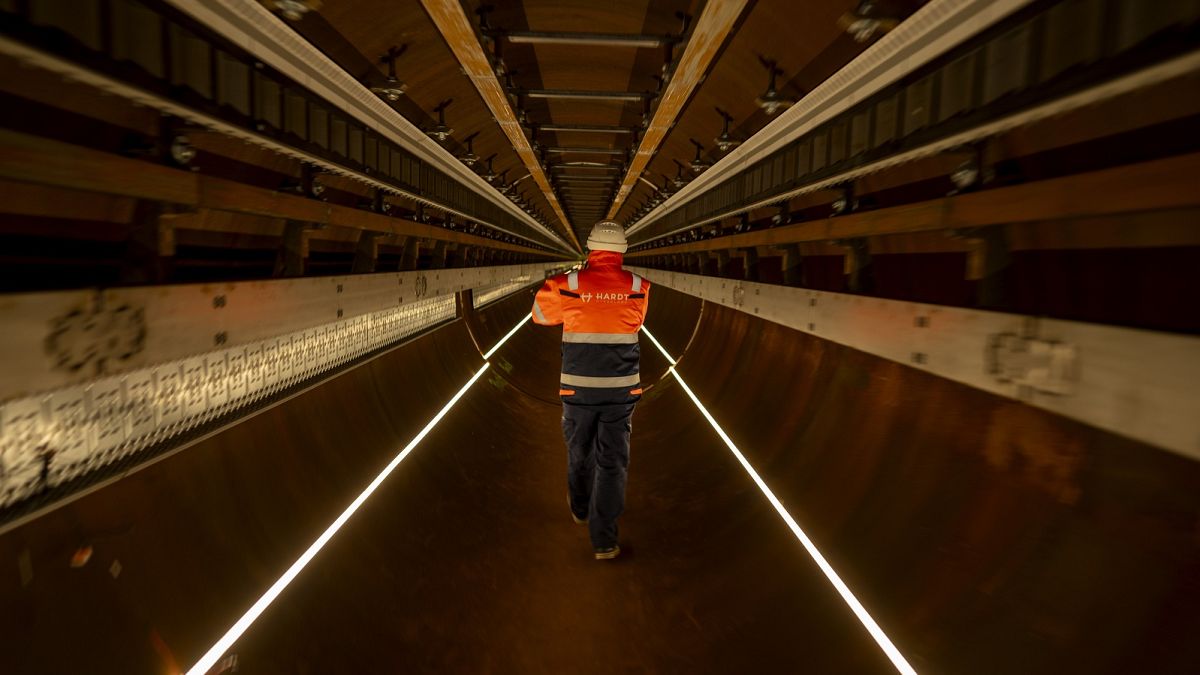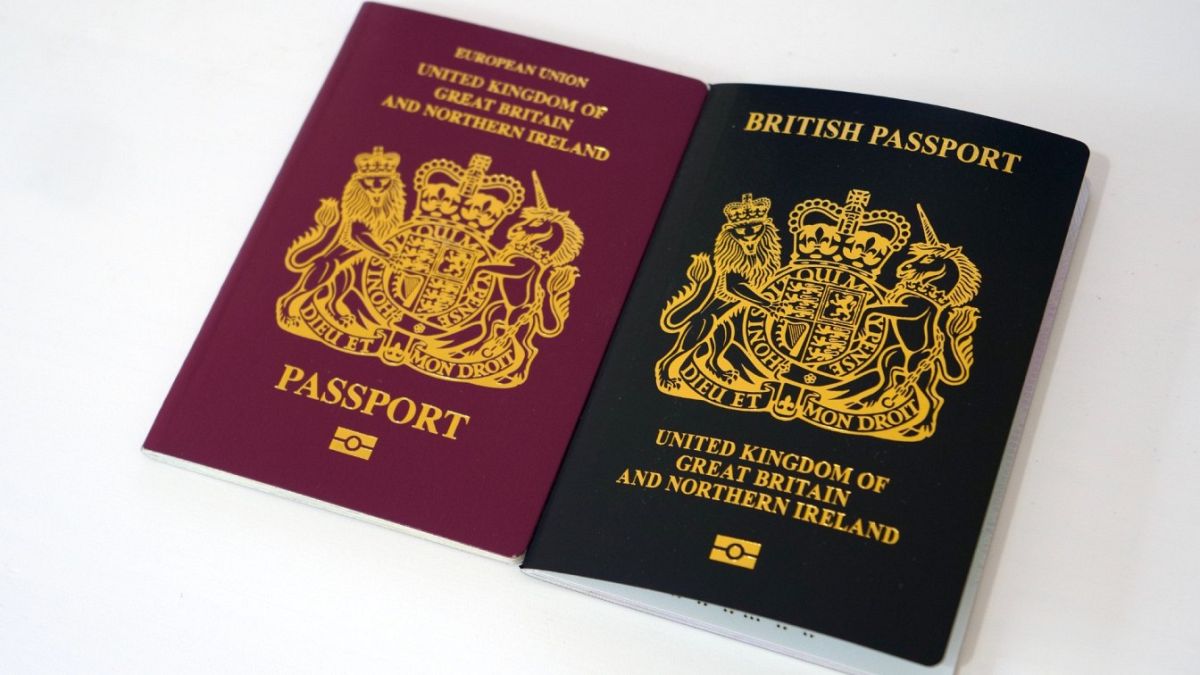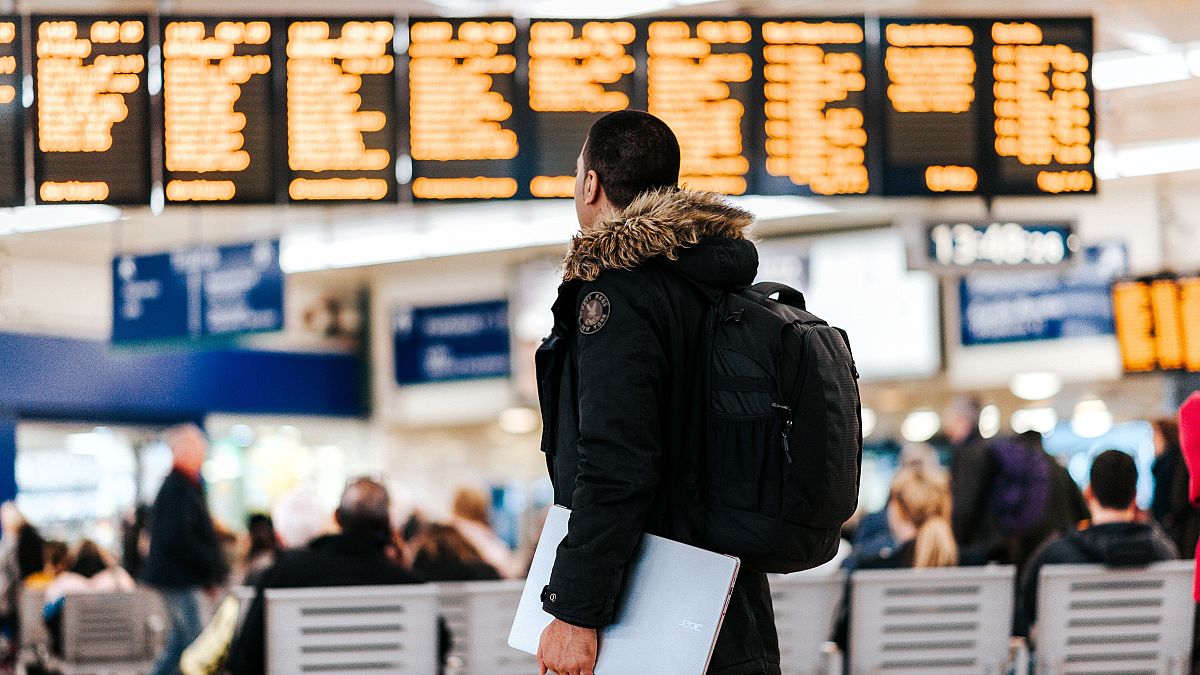What do airlines owe you for flight delays and cancellations?
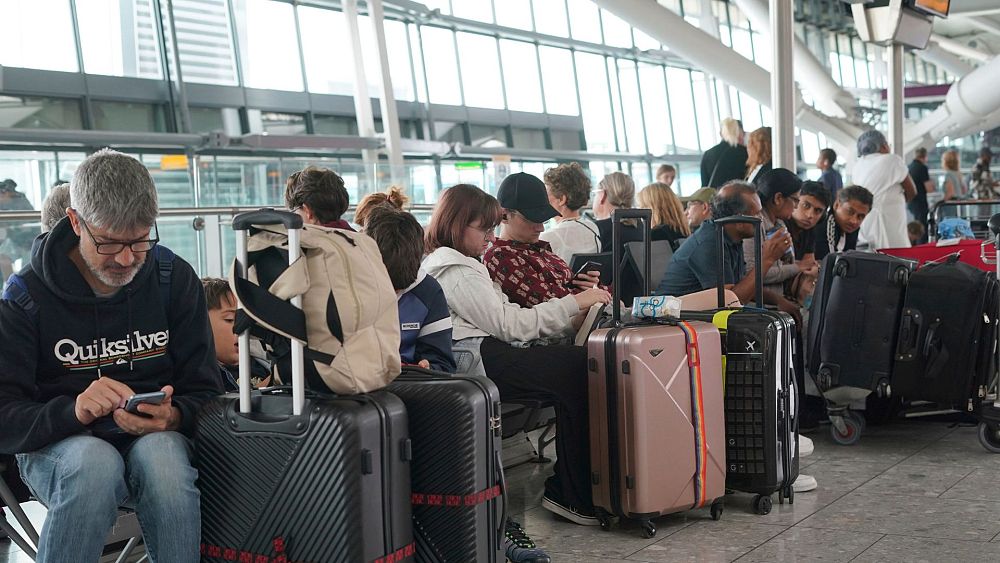
Here’s how to make sure you get your money back from airlines if your flight is cancelled – even if there are ‘extraordinary circumstances.’
It’s every traveller’s worst nightmare.
Thousands of flights have been cancelled or delayed after an air traffic control system failure in the UK on Monday.
Knock-on disruption is wreaking havoc for holidaymakers across Europe.
Delays could continue for days – but if you’re one of the unlucky travellers caught up in the mess, don’t worry.
Your airline owes you a ‘duty of care’. Here’s what that means and what you can claim.
What is an airline’s ‘duty of care?’
When flights are cancelled, passengers are often entitled to financial compensation – but the air traffic control fault falls under ‘extraordinary circumstances’.
This means airlines are not responsible for the disruption, and you won’t be due any compensation if your flight is cancelled or delayed.
However, airlines still owe you a ‘duty of care.’ If your flight is cancelled, you have the right to choose between a refund or an alternative flight.
If you choose the latter option – or your flight is delayed – the airline must provide you with the following while you wait at the airport:
- A reasonable amount of food and drink (often provided in the form of vouchers)
- A means for you to communicate (often by refunding the cost of your calls)
- Accommodation, if you are re-routed the next day (usually in a nearby hotel)
- Transport to and from the accommodation (or your home, if you are able to return there)
The airline needs to supply you with these items until it is able to fly you to your destination, no matter how long the delay lasts or what has caused it.
“If you are still waiting to come home, airlines have a responsibility to look after you while you wait,” explains Rob Bishton, Joint-Interim Chief Executive of the UK Civil Aviation Authority.
“This means providing you with meals, refreshments and hotel accommodation. If airlines cannot do this, you can organise your own meals and accommodation then claim costs back.”
EasyJet, for instance, issued delayed travellers with food and drink vouchers worth €9 after they had been waiting for three hours
How much money can you claim from airlines?
Before you launch into booking a hotel, make yourself known to an airline representative as they may offer you accommodation. Alternatively, if you are provided with vouchers from the airline, you’ll have a clear idea of how much you can spend.
In other instances, you will have to pay yourself – a particularly common outcome in cases of mass disruption. You have the right to organise “reasonable” care and assistance for yourself.
So how much, exactly, is ‘reasonable?’
Unfortunately, it’s hard to say.
Airlines deliberately don’t specify an exact threshold. A level of common sense applies – if your flight from Gatwick is delayed, you likely won’t be reimbursed for a five-star stay in central London.
But other questions are trickier. What if the only accommodation left is an expensive hotel? What if there’s nowhere to stay near the airport and you need to pay for a taxi?
Again, you are entitled to ‘reasonable’ support so both of these expenditures would likely be justified. But the grey area can be stressful.
To make sure you don’t get caught out, follow these steps.
How to make sure you get your money back from an airline
The first rule is simple: make sure you keep every receipt.
“If you end up paying for things yourself or booking your own replacement flight or hotel, keep every receipt and make sure your claim is not excessive,” advises Bishton.
The next step – a reimbursement claim – is trickier.
You must contact your airline to make a claim before you go to a third-party organisation like an alternative dispute resolution body (details further down the article). Otherwise they may throw out your claim on the grounds that you breached their terms and conditions.
Most airlines have claims options outlined on their websites.
The CAA urges passengers to “set out their case well, include all relevant information, and provide evidence that they were on a flight”.
“State exactly what compensation and expenses you are claiming,” they urge.
You should make sure you include:
- Your full contact details – including your address, email and phone number
- Full details of all passengers – including names and addresses
- Your booking reference and travel dates
- The flight number, departure and destination airports
- Details of where the disruption occurred
- Information about the length of delays
- The names of any staff you spoke to
Supporting documentation – such as receipts, tickets, boarding cards, and booking confirmation – will help your claim.
The Civil Aviation Authority has provided a helpful guide to making claims here.
What to do if the airline rejects your reimbursement claim
If the airline rejects your claim, you can appeal the decision in a few different ways.
“Arm yourself with knowledge and persistence—sometimes, airlines might initially reject your claim, but if you’re eligible under EU laws, don’t shy away from appealing the decision,” the International Driver’s Association warn.
Firstly, can refer your complaint to an ‘Alternative Dispute Resolution’ (ADR) body which looks at your complaint out-of-court. In the UK, these are the Centre for Effective Dispute Resolution (CEDR) and AviationADR. These are third party bodies that can help you argue your case.
Not all airlines are members of ADR schemes, however. If your airline isn’t signed up, you can escalate your complaint to the Civil Aviation Authority, which performs a similar function.
If this doesn’t work, you will have to go to small claims court.
This option is time-consuming and can be stressful, so you should make sure you have exhausted all other avenues first. Information on how to make a court claim can be found here.
In March, consumer advocacy organisation Which? found that airlines owe £4.5 million (€5.2 million) to passengers from outstanding County Court Judgments (CCJs).
Source: Euro News


